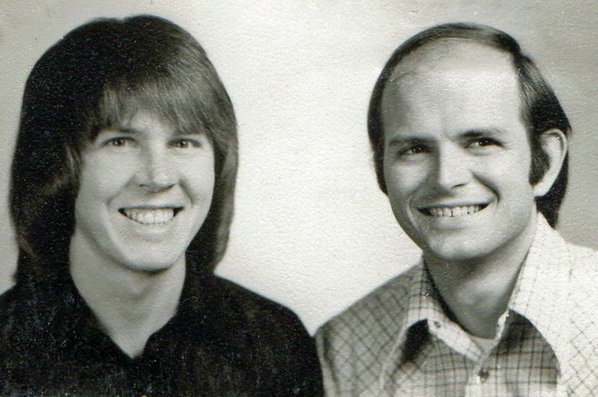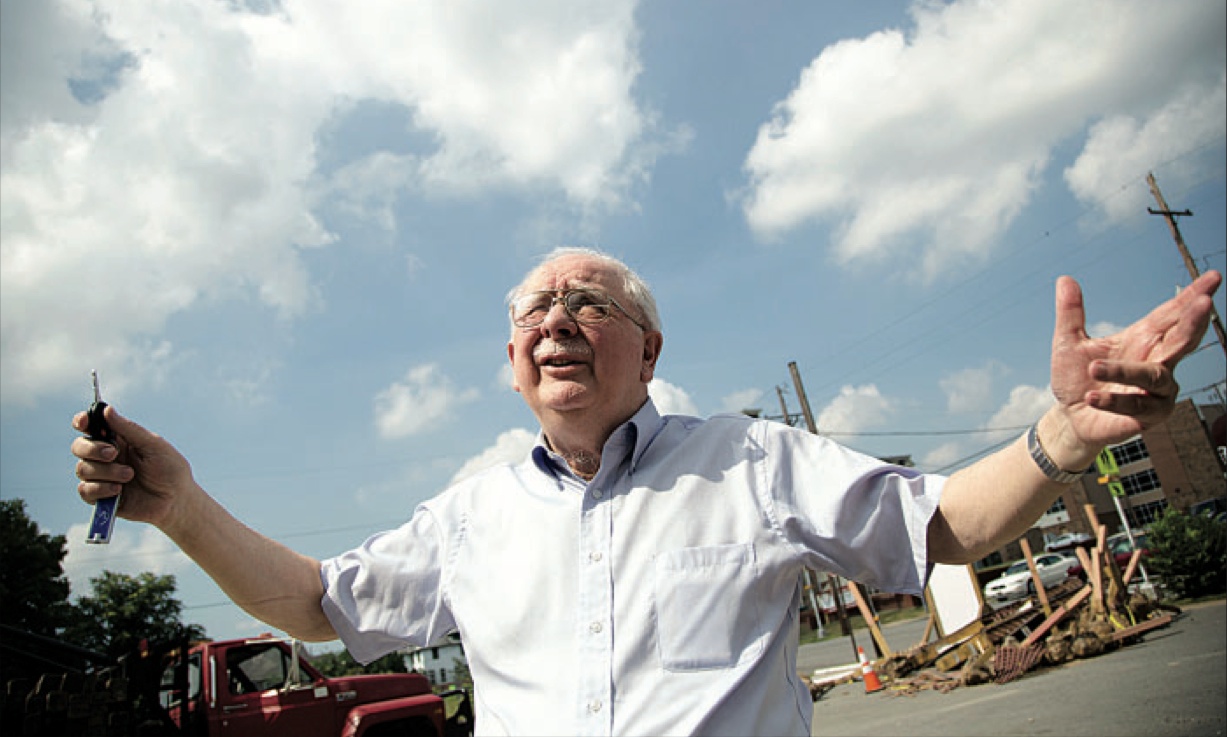Couples jubilant long journey is over

They met in a crime-ridden part of Memphis at a nondescript gay nightclub marked only by a small sign in 1972.
Men weren't allowed to dance together in the city in 1972, but Zeek Taylor, then 25 years old and a student at the Memphis College of Art, and Dick Titus, 23 years old and a bookkeeper at an auto-parts store, took a chance.
"Every now and then [the police] would drive up. There would be a lookout and the lookout would let everyone know. The lights would flicker and we would all sit down," Taylor said. "We could have been arrested. We were intimidated just by the [thought of] prisons."
In the decades that followed, Taylor, now 68, and Titus, 66, have seen attitudes change.
They concealed their relationship when they lived in Fayetteville in the late 1970s and 1980s -- keeping two houses even though they lived together -- but in 1987 the two moved to Eureka Springs and decided they no longer wanted to hide.
"We felt embraced and loved and part of the community," Taylor said. "That meant freedom. It just meant freedom to be ourselves for once."
On May 10, 2014, Taylor and Titus became the first gay men to be married in the South, in Eureka Springs.
And Friday, the Supreme Court ruled the state would have to recognize their vows.
The danger of losing a job, harassment or being the victim of a hate crime has diminished since the 1970s, but until Friday's Supreme Court decision, Taylor and Titus were still managing the legal headaches associated with being gay and in a long-term relationship.
There were questions over hospital visitation, property rights, taxes and Social Security.
No more.
"We have been laughing and crying all day. We've fought for this for most of our lives," Taylor said. "It's been a long journey. I'm just so glad we lived to see it happen. Wow. Wow."
...
Having one child is difficult enough. Little Rock resident Becca Austin and her wife have twins.
But because her wife, Tara, 39, gave birth to the children, 34-year-old Austin's legal rights as a parent have been uncertain -- though her name is on the children's birth certificates.
"We were basically legal strangers," she said. "I would assume they wouldn't take my name off it, but you never know."
Friday's Supreme Court means their marriage is no different from any other in the eyes of the law.
Austin and her spouse now have equal rights concerning their children. After learning of the decision, she said her first emotion was relief.
"It hasn't been a huge roadblock, but it's always there in the back of your mind," Austin said. "There are some things that could really have gone wrong if something happened to one of us."
Had her wife died, Austin would not have been guaranteed custody of her children. The court's ruling changes that -- and a host of other legal matters.
The couple can share insurance. If they have another child, both could take family leave, something Austin was denied the first time she became a mom. They can file their income taxes as a married couple.
Now, Austin said, the focus is on Calvin and Sloan, 6.
"[Calvin's] kind of wild and very sweet and loving. Sloan is very smart and very sassy and they both just keep me on my toes," Austin said. "And the most important thing going on with them is how many teeth they've lost and how many are wiggly."
...
They share a love and a home, but they haven't been able legally to share a name.
"I feel like it's everything to us," Jennifer Rambo said. "We're firm believers that we have to share where we came from."
That's why 27-year-old Rambo, and her wife, Kristin Seaton, 28, want their last name to be Seaton-Rambo. It already is to friends and family -- but not in the eyes of the law.
They've gone to the Social Security Administration office in Little Rock twice to try to change the names on their government paperwork. They were told the system couldn't process the change. The Supreme Court ruling, they believe, will help fix that problem.
The two -- the first gay couple to be married in the state -- said they haven't had it as tough as older couples. Their parents were supportive. Most people in Fayetteville -- where they met in 2010 -- and now Fort Smith have respected them, Rambo said. Still, the Supreme Court decision will make it easier to start a business together, share insurance and perhaps one day start a family, Rambo said.
And their names will reflect who they are, she said.
